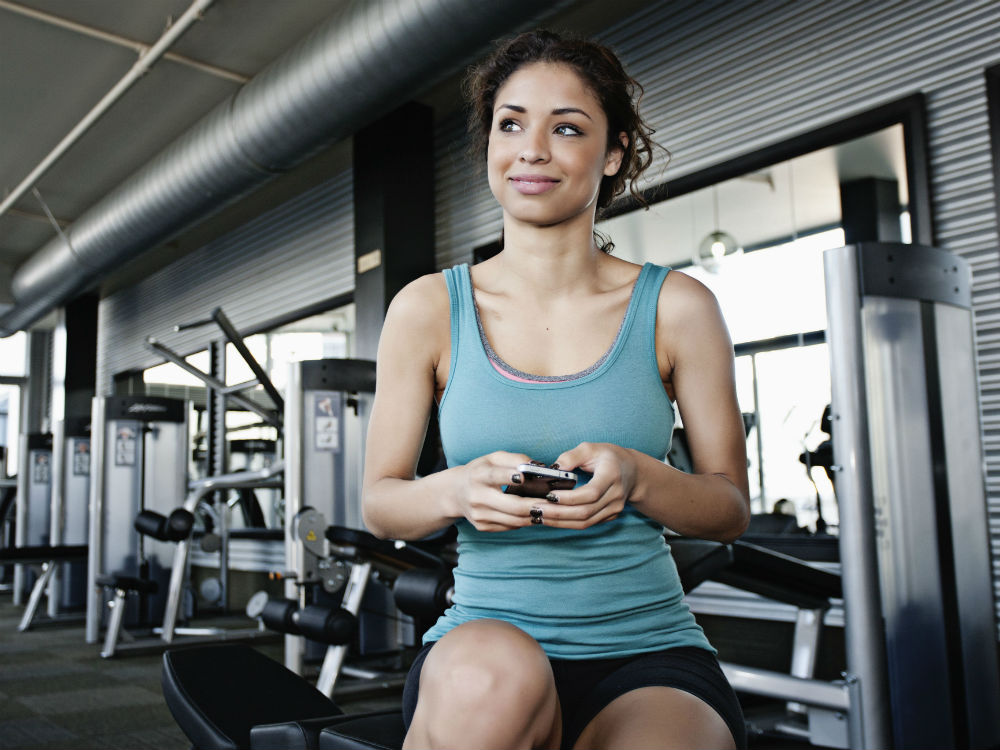Are You Over-Sharing Your Fitness Stats?
What's the first thing you do after a fitness session? Go for a shower, do a few stretches - or reach for your phone so you can post your results and gloat about your new PB? Here's why fitness bragging is all the rage

What's the first thing you do after a fitness session? Go for a shower, do a few stretches - or reach for your phone so you can post your results and gloat about your new PB? Here's why fitness bragging is all the rage
Just when you couldn't be sicker of people relentlessly posting pics of their dinner on Instagram, a new over-sharing trend hoves into view. Enter fitness bragging. To which the only sensible response is, bore off.
The phenomenon has come about thanks to a slew of activity-monitoring fitness bands and apps, and it seems we are bombarding friends and strangers with endless fat-tummy selfies, aching-muscle humblebrags, and gruelling mileage tallies.
Flat-abs selfies. Really? This is about more than the desire to post on FB after you‚'ve run a 10k or finished a swimathon. The Nike+ Running App has 28 million users worldwide and encourages braggers to tag selfies with stats to be shared on Instagram. Meanwhile Strava, a cycling and running app, boasts 100,000 new users a week and compiles league tables pitting your times against cyclists around the world. And the people behind the Jawbone Up band state, "When you have more than three friends in your team, you move ten extra miles a month." Why would you do that? The reason? Well, it's that social media old chestnut - validation. Yet a backlash is on the way. In a recent survey, 53 per cent of people said the most annoying users of social media are those posting fitness updates. Nathalie Nahai, web psychologist and author*, argues: "This kind of bragging is harmful to self- esteem because we are more likely to judge ourselves against another person‚'s body image than a picture of someones salad. It leads to feelings of frustration and envy."
Oh, for the gold stars... Luckily, many devices recognise that we need personal rewards as much as social sharing. Popular activity tracker band FitBit gives badges and buzzes when you reach a goal, Strava awards a QOM title (Queen of the Mountains) to the fastest in a league table, and Nike+ doles out stamps and Nike Fuel to display on your public profile so your buddies can like and comment.
Rewards are like catnip to the brain, says Dr Victor Thompson, a clinical sports psychologist. "In the same way star charts motivated us as children, a buzz or text encourages you to chase that goal again.
We say you can't argue with a star chart. But bragging? Not so much. Then again, maybe we‚'re just jealous.
Celebrity news, beauty, fashion advice, and fascinating features, delivered straight to your inbox!
* Webs of Influence: The Psychology of Online Persuasion, by Nathalie Nahai (Pearson)
The leading destination for fashion, beauty, shopping and finger-on-the-pulse views on the latest issues. Marie Claire's travel content helps you delight in discovering new destinations around the globe, offering a unique – and sometimes unchartered – travel experience. From new hotel openings to the destinations tipped to take over our travel calendars, this iconic name has it covered.